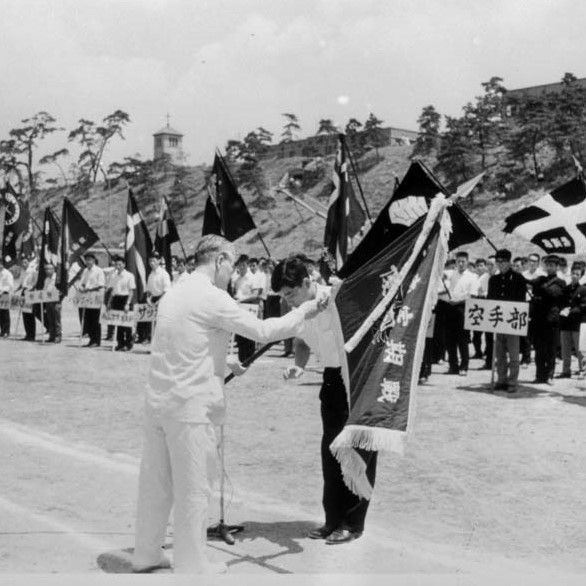Did you know that Sophia has an intercollegiate sports competition? Sharing our founding spirit of Catholicism, (Note 1), Nanzan University and Sophia builds unity not only through sports but also exchanges in their cultures.
Sophia University and Nanzan University: The Spiritual Connection of Catholicism
The annual “Sophia University-Nanzan University Intercollegiate Athletic Competition” (hereafter referred to as “Jounan”) between Sophia University and Nanzan University (Nagoya, Aichi Prefecture) celebrated its 63rd anniversary in 2022. The fateful showdown, which was held for the first time in three years due to the Covid-19, ended with Sophia University seizing victory with a 17-15 score points.
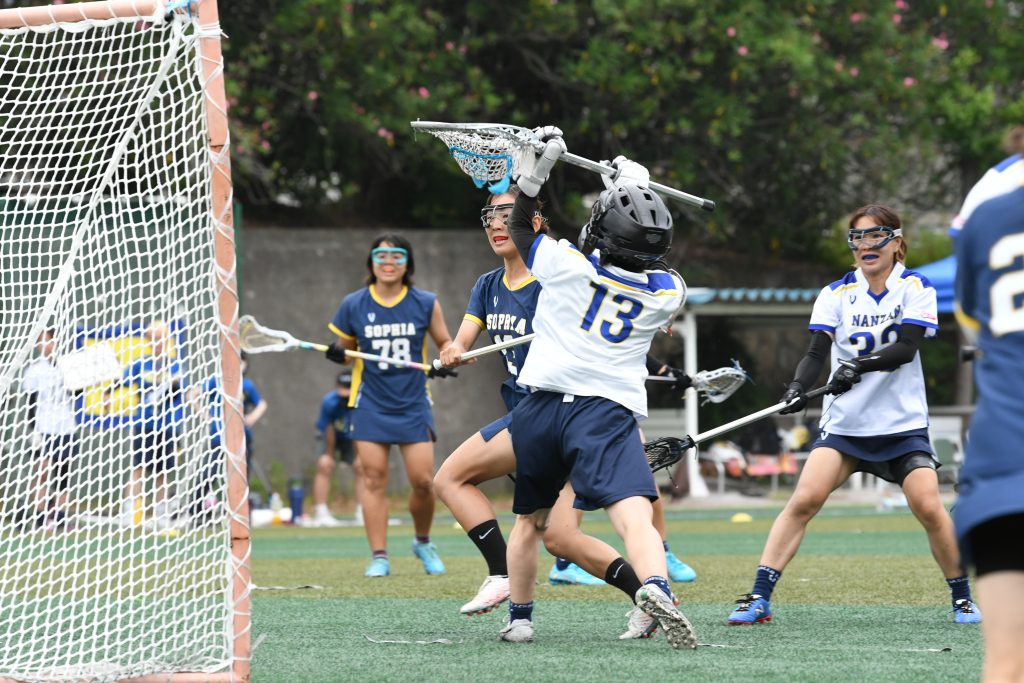
The history: When did it begin?
Why Nanzan University? The relationship between Sophia University and Nanzan University began in 1949, when Nanzan University was founded. It was founded by the Shingenkai, a Catholic religious order, with the founding motto of “To provide school education based on a Christian perspective and to nurture individuals to respect and promote the dignity of humanity.” The spiritual affinity of Catholicism is one of the reasons why Sophia University and Nanzan University developed a close relationship. In the “Sophia University Newspaper” (No. 32, December 15, 1949), under the headline “Closer Partnership with Nanzan”, “The University Festival successfully promoted the cultural and educational bonding between Sophia and Nanzan. Although this year, only the athletic clubs of the Nanzan University visited, cultural exchange is expected to be held annually, and in the next Nanzan University Festival, Sophia and Nanzan will expand its connection not only in the sports but with theater, publishing of newspapers, and so on.
Start of the “Jounan Game”
Active exchange through sports and other extracurricular activities between two schools had resulted in the commencement of the famous “Jounan Game.” The first game was held at Nanzan University, on June 25 and 26 1960. It all started when the fifth dean of Sophia, Takashi Oizumi (Note 2) suggested to conduct intercollegiate games to enrich the partnership between two schools, which already had regularly held among few athletic teams such as the rugby team. As to the first event, eight games were held: baseball, soccer, table tennis, judo, basketball, tennis, volleyball, and ice hockey, as well as other cultural exchanges. Nanzan University won the rivalry competition 5-3.
The following year, in April 1961, a formal agreement was signed between the Nanzan University Athletic Department and the Sophia University Athletic Association, to hold the “Sophia Nanzan school athletic competition”, a comprehensive athletic game on a regular basis. Two months later, in the second competition at Sophia University, the number of athletic events increased to 11, as well as the exchange between cultural clubs of both schools. However, in the third competition, which Sophia University won with 7-3, since the cultural groups held their own events on other occasion there was no participation at this time as the Sophia University Cultural Club Federation. In The Sophia University Newspaper (July 1, 1962, No. 141) noted, “Nanzan University was very disappointed.”
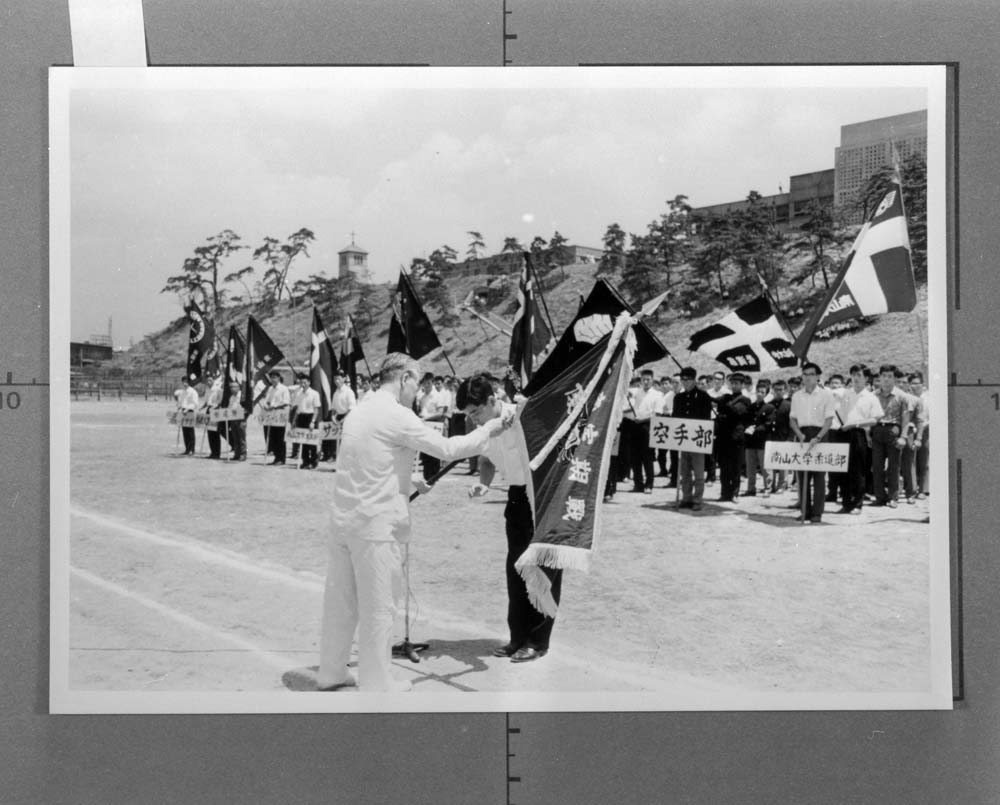
University Events
Although the “Jounan-sen” may be seen as a sports competition of the Athletic Club Federation, there have also been exchanges between cultural clubs of both schools, such as the brass band club, Rakugo club, broadcasting study club, and E.S.S. The Jounan game was originally an event held by Athletic Club Federation apart from Cultural Club Federation. However, there was not much interaction between those two organizations as they functioned individually. To promote the hybrid education-sports exchanges, Jounan Game became a whole school event that unites the cultural and athletic activities since 14th game in 1973, also taking the financial burden of the students into the consideration.
However, the situation has remained unchanged. Interaction among cultural clubs were limited to small groups, and some even asked whether the Jounan game is really a whole-university event. It was time to reevaluate the purpose of the Jounan game. With new non-sports initiatives such as the making of the Jounan T-shirt and the launch of a Web bulletin board, combining with the longstanding efforts to continue the game, such as interview between the executive committee chairs of Sophia and Nanzan and a Jounan game review meeting, the Jounan Game celebrated its memorable 50th anniversary in 2009. In the cultural groups, there were also exchanges among new groups such as the photography club, the folk song club, and the “Seihou-kai,” a legal study club. Creative approaches were taken in an effort to promote the Jounan Game, such as, hosting T-shirt Day in which students and staff members wear the Jounan T-shirt, photo contests, official mascots and so forth.
On the other hand, the situation has remained somewhat unchanged with cultural groups’ exchanges limited to a few organizations, and opinions such as whether the Jounan Tournament is really a university-wide event and whether it is time to reevaluate the role of the Jounan Tournament are now being raised. With new non-sports initiatives such as the making of the Jounan T-shirt and the launch of a Web bulletin board, combining with the longstanding efforts to continue the game, such as interview between the executive committee chairs of Sophia and Nanzan and a Jounan game review meeting, the Jounan Game celebrated its memorable 50th anniversary in 2009. As to the cultural groups, there were also exchanges among new groups such as the photography club, the folk song club, and the “Seihou-kai,” a legal study club. Creative approaches were taken in an effort to promote the Jounan Game, such as, hosting T-shirt Day in which students and staff members wear the Jounan T-shirt, photo contests, creating official mascots and so forth.
Then, in December 2018, before the 60th Game, Sophia University and Nanzan University signed a comprehensive agreement on collaboration and cooperation to promote new exchanges between students, including the continuation of the traditional “Jounan Game” and other student exchanges, expansion of cultural exchanges, and mutual implementation of student-planned events. The agreement was intended to promote new exchanges between students. However, shortly after, the Covid-19 outbreak caused the 61st (2020) and 62nd (2021) games to be cancelled. The Jounan Game are faced with new challenges.
In the near future, perhaps, we may witness the new type of Jounan Game that does not require the physical presence of the students.
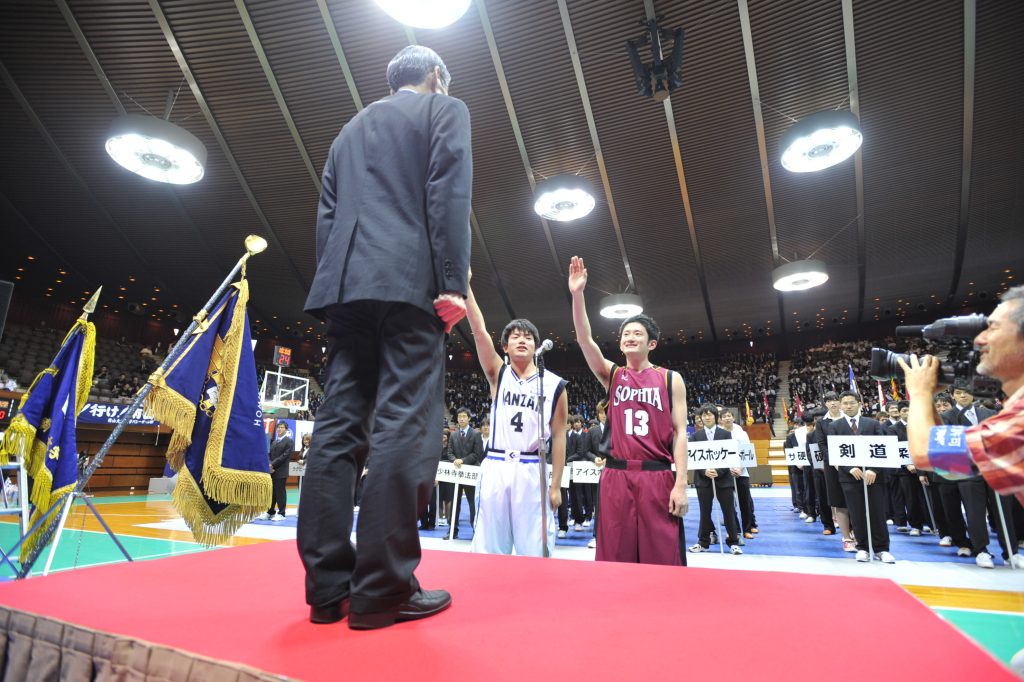
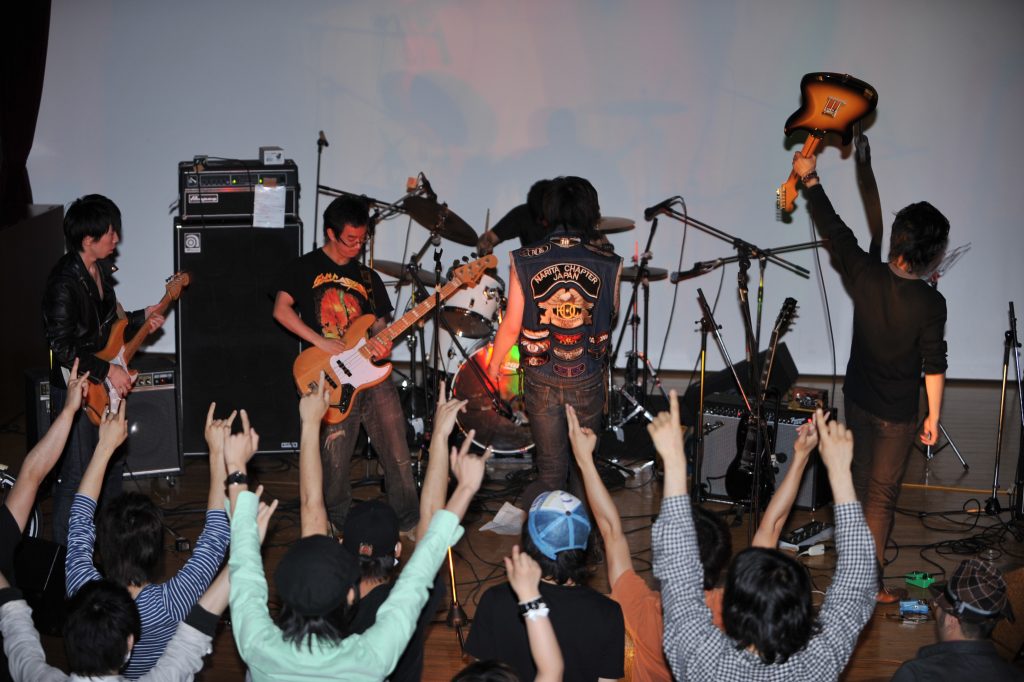
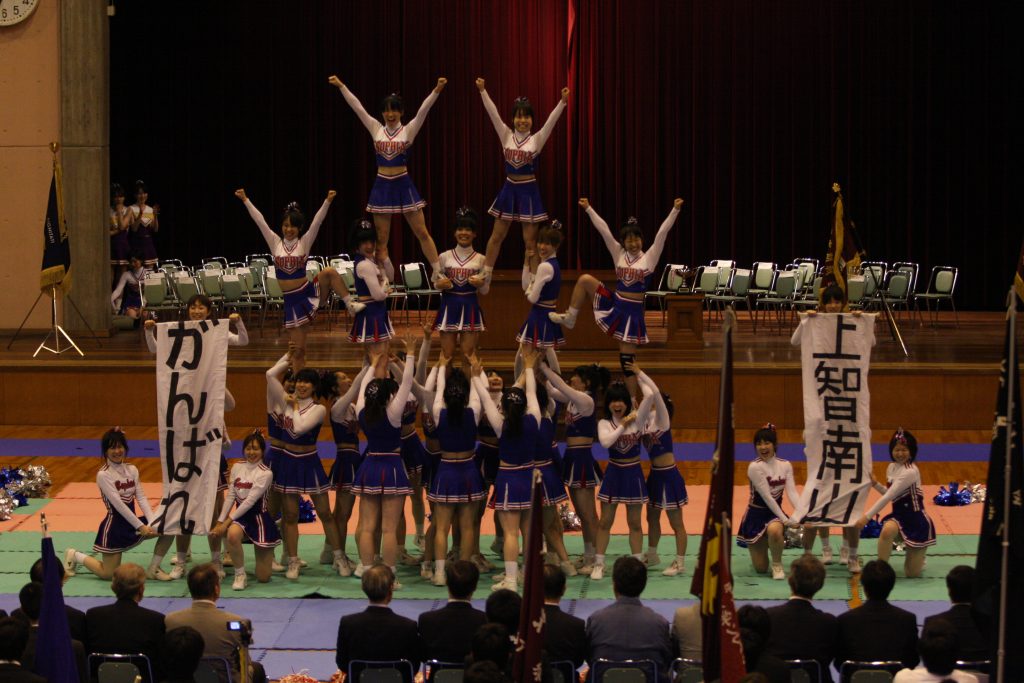
(Note 1) A principle or ideology dedicated to Catholicism, which is the universal and general philosophy, belief, worship, and practice of Christianity.
(Note 2) Reign: 1953-1968 (1902-1978)
Photos marked with * are in the collection of the Sophia Archives.
